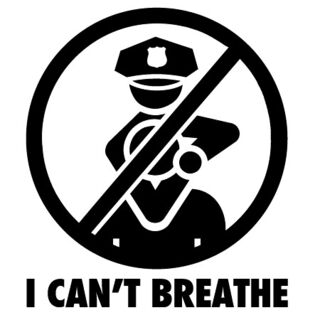Bias
Confirmation Bias and Police Brutality
Are you just seeking to confirm what you already believe?
Posted June 1, 2020 Reviewed by Lybi Ma

Confirmation bias is the logical fallacy where one only looks for evidence that confirms the beliefs that they want to hold. It usually goes hand in hand with evidence denial, where one does the opposite with evidence contrary to one’s desired beliefs and ignores it. For the purposes of simplicity, however, I’ll just refer to the human tendency to do both together as “confirmation bias.”
As I explain in my entry on confirmation bias for Rob Arp’s Bad Arguments, confirmation bias is a recipe for delusion. Anyone can find evidence for something. If you try to prove yourself right, you should not be surprised when you do. Only if you try to honestly prove yourself wrong and fail do you really have good reason to think that you are right.
Confirmation bias is perhaps most common in conspiratorial thinking. Conspiracy theorists will seek out seemingly inexplicable anomalies in the “official story“ of some important event to support their belief that some nefarious group was behind it. At the same time, they will ignore any evidence against the conspiracy theory, including obvious common sense and mundane explanations for what they think is inexplicable, so that they can continue to believe it.
In moments of civil unrest, however, especially when particular incidents or news stories inspire protests and riots, cries of confirmation bias are common. One might argue, for example, that a person who says white policeman Derek Chauvin killing the black man George Floyd is evidence of widespread police brutality against blacks is guilty of confirmation bias. But there are two relevant replies to this argument.
First, the fallacy of generalizing from one example to the whole is called hasty generalization, not confirmation bias. So the person making this argument has mislabeled the fallacy they are claiming their opponent committed. But second, and more importantly, that is not the argument that anyone is making; no one is arguing that George’s death alone is evidence of systematic oppression of the black community by police officers. The arguer mentioned above is thus committing the “strawman fallacy.” He is stating his opponent’s argument in a weaker way to make it easier to attack.
In reality, George’s case was just the straw that broke the proverbial camel’s back. When taken together with other similar cases, where police officers unnecessary and unjustly killed black men—like Freddie Gray, Sam Dubose, Philando Castile, Terence Crutcher, Alton Sterling, Jamar Clark, Jeremy McDole, William Chapman II, Walter Scott, Eric Harris, Tamir Rice, Akai Gurley, Michael Brown, and Eric Garner—a pattern of police brutality against blacks (especially men) appears to emerge.

But it is here where accusations of confirmation bias might make more sense. Are we only seeking out or paying attention to stories about police brutalizing blacks, and not seeking out or hearing similar incidents involving whites? If so, perhaps we just have a problem with police brutality in general, not with police brutality towards a specific race.
This was the kind of argument that I recently heard from an undergrad acquaintance of mine, Carl*, who told a lengthy story about how he went looking for unreported stories of police unjustly killing white people that didn’t go viral or get reported by the “mainstream media.” After a deep dive, he supposedly found nine. Because of this finding, Carl essentially accused the mainstream media of engaging in confirmation bias to feed a narrative, a narrative that police are especially cruel to blacks (when, in fact, they are cruel to everyone equally).
What Carl failed to realize, however, is that he was guilty of the very logical crime of which he was accusing others. He was already convinced that there is not a problem, that police brutality is equally dispersed, and so he specifically sought out all and only unreported stories of police brutalizing whites to confirm that theory. He did not seek out unreported stories of police brutalizing blacks, for example. Would they be even easier to find? Would they be more numerous? Indeed, for any given story he found with a white victim, I imagine I could find another unreported story with a black victim. After all, they happen almost every day. But, of course, if I did that, I would be just as guilty of engaging in confirmation bias myself.
The remedy to confirmation bias is not more confirmation bias; it’s usually statistics. In this case, one needs to know how common such incidents are for both races, the relevant sizes of those races in the general population, etc. (If the number of incidents for both races is roughly equal, but one race makes up a substantially smaller part of the population, then clearly that race is being treated unfairly.) Fortunately, however, those numbers have already been calculated. According to two comprehensive studies on the topic, summarized here, “African Americans are 2.5 times more likely to be killed by police than white people” and “one in 1,000 black boys and men will be killed by police in their lifetime [but for] white boys and men, the rate is 39 out of 100,000.”
Of course, Carl might claim that higher crime rates among blacks account for those numbers, but crime rates are not that much higher in relevant black communities. Indeed, the crime rates in both black and white poor communities are the same. What’s more, the most relevant question would seem to be “are cops killing the black people they encounter while on the job more often (at a higher rate) than whites they encounter on the job?” But even that won’t give the whole picture, because cops could be encountering blacks more often on purpose. One study I read about suggested that blacks are more likely to be killed by cops than whites because cops are more likely to pull blacks over.
Because I tried my best not to engage confirmation bias myself as I researched this topic, I did find one study that suggested that both white and black cops kill African Americans at the same rate. But that study itself is suspect and is a red herring. At best, all it would prove is the racial bias that seems to exist in police forces is not confined to just white cops; instead, it’s part of the police culture. (Darren Slade, at GCRR, a former cop himself, has recently argued this.) It would not entail that bias does not exist. In fact, such a systemic problem is arguably worse. It certainly doesn’t entail that the protests are not justified. (Update: That study has since been retracted because it was misused.)
While it might be true that the media reports on incidents of police brutalizing black men more often, it doesn’t seem that this is due to some kind of confirmation bias that is motivated by the need to feed a narrative. Police brutalizing blacks is, in fact, the bigger problem; and as such deserves a bigger share of the media's, and the public’s, attention. Yes, George Floyd’s death by itself does not prove that there is a widespread problem. The statistics do that. But it was so egregious, it has become a symbol of the problem.

Indeed, complaining about the media reporting on George Floyd but not the police brutality against some white guy named John Smith is like complaining about the fact that the media reports on Covid deaths but not car accidents. 3000 people a day are dying from Covid. Even on a bad day, only about 90 die from automobile accidents. Both are tragic, but since the former is the bigger problem, it deserves more coverage.
The claim that the media, or those upset about police targeting blacks, are engaged in confirmation bias that renders the motivation behind the protests of George Floyd’s murder unwarranted, are unfounded. Instead, the opposite is true. Those who seek out unreported stories of police brutality against whites to feed the narrative that there is no problem are the ones engaged in confirmation bias. It is their conclusion that is not justified.
Copyright 2020, David Kyle Johnson
References
* Name has been changed.




